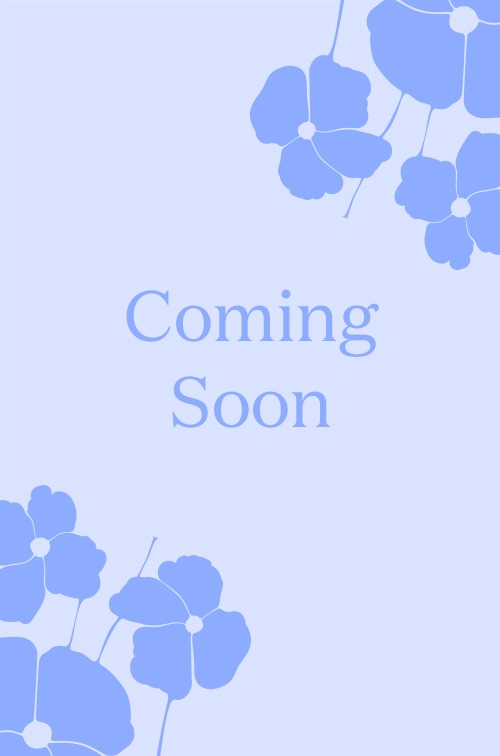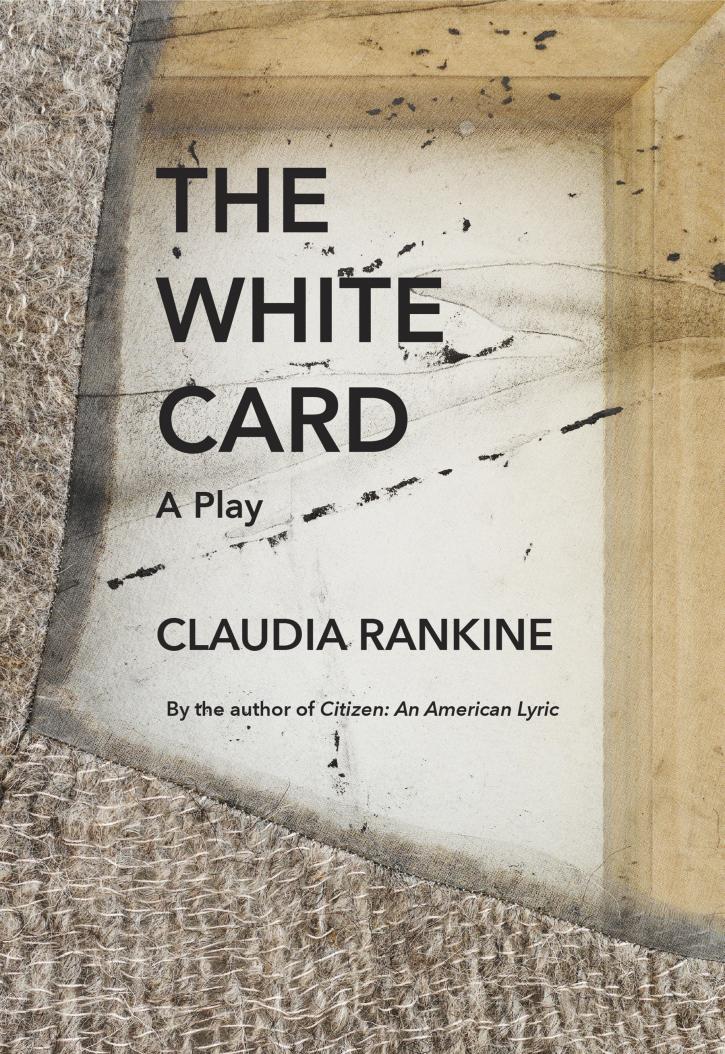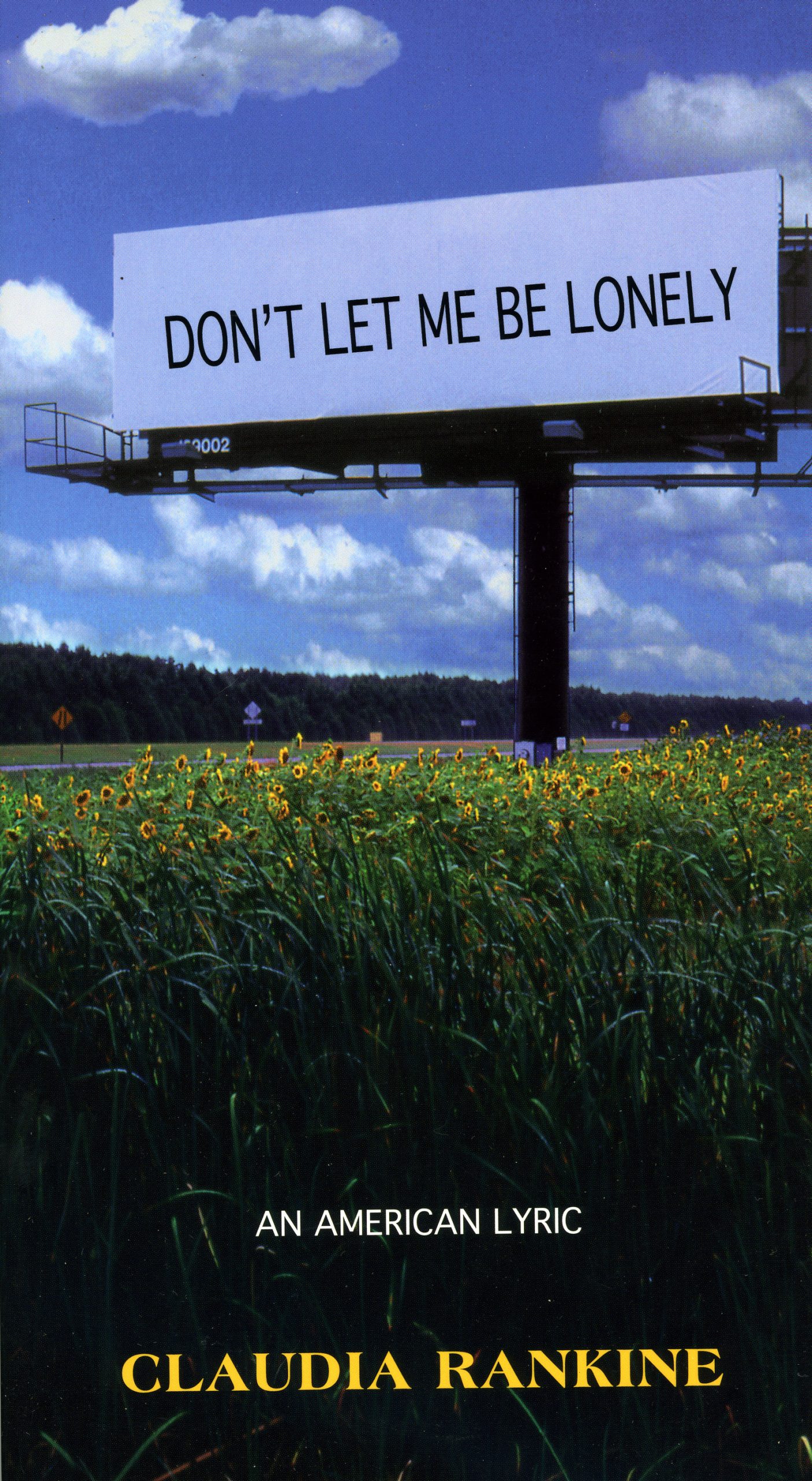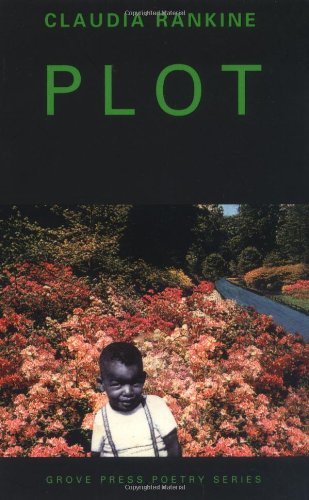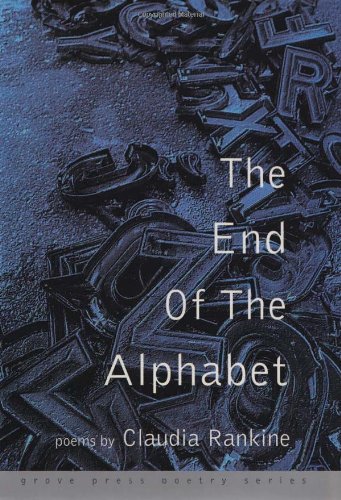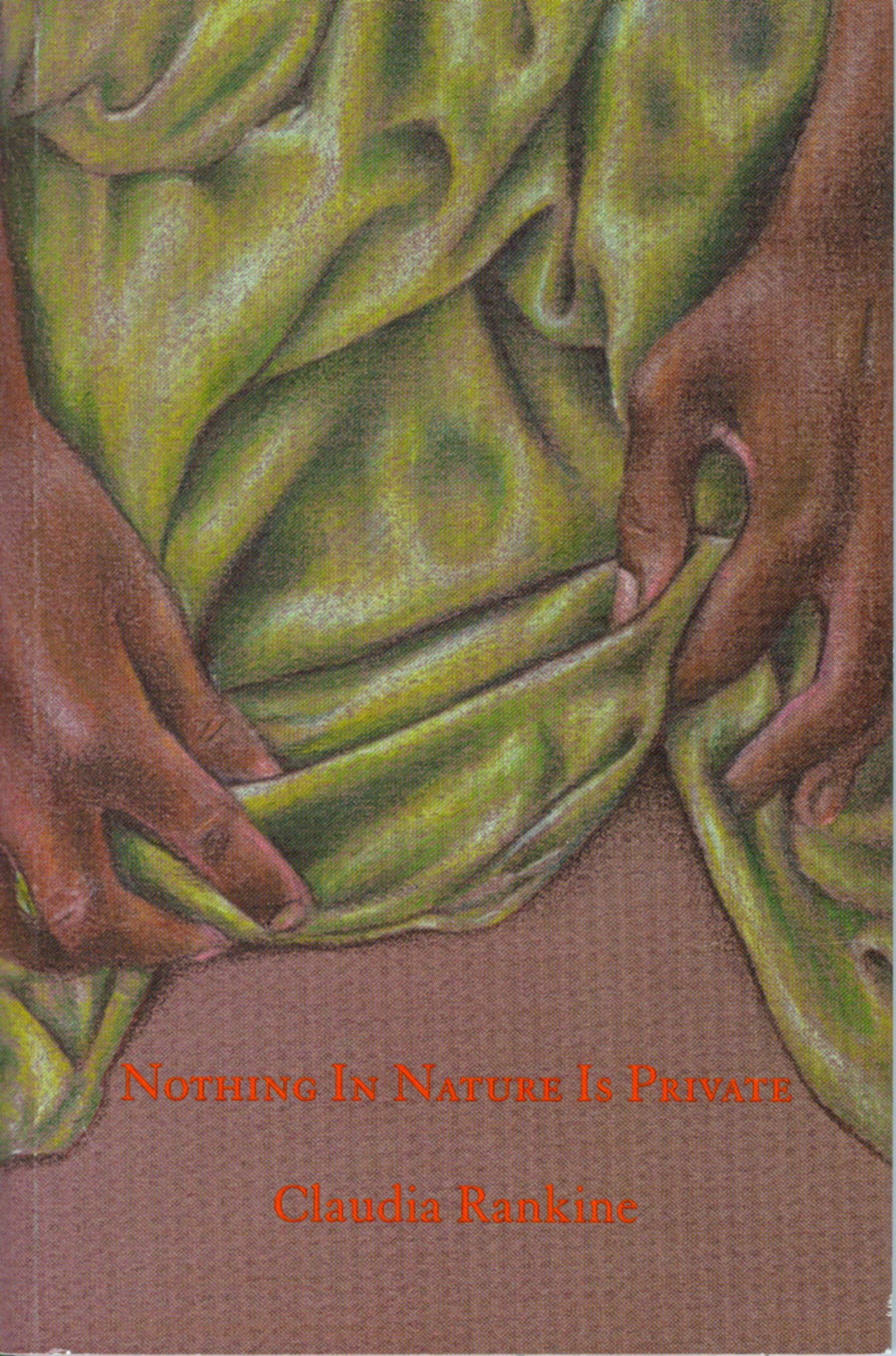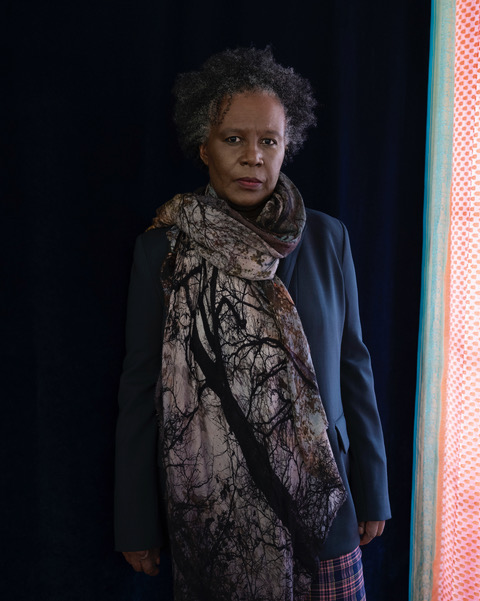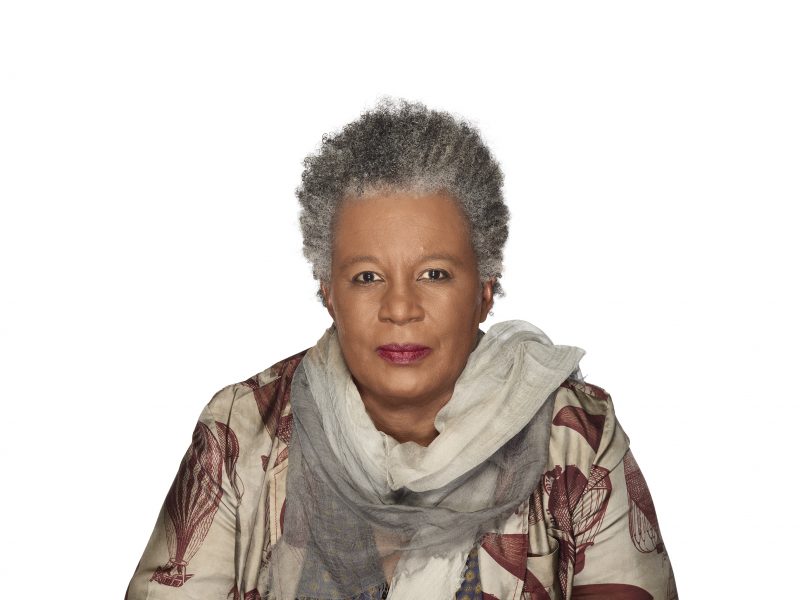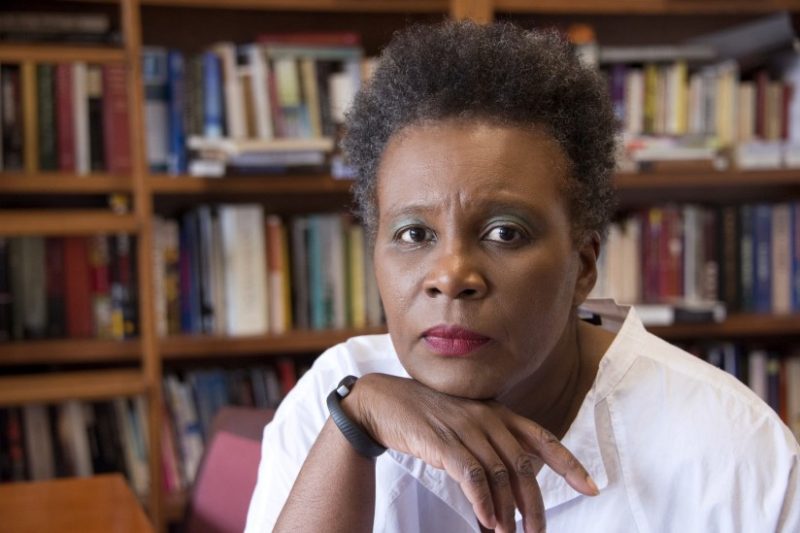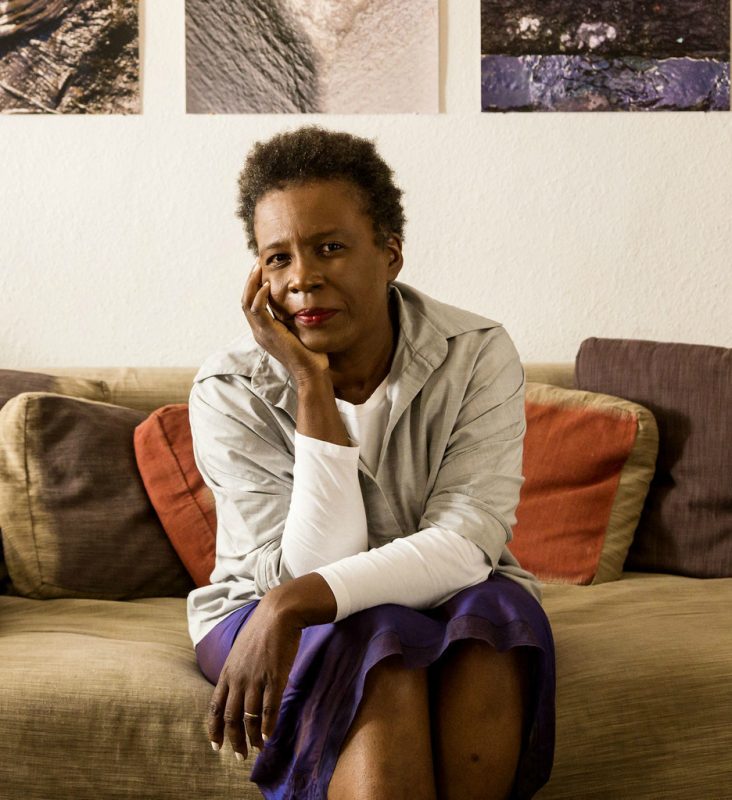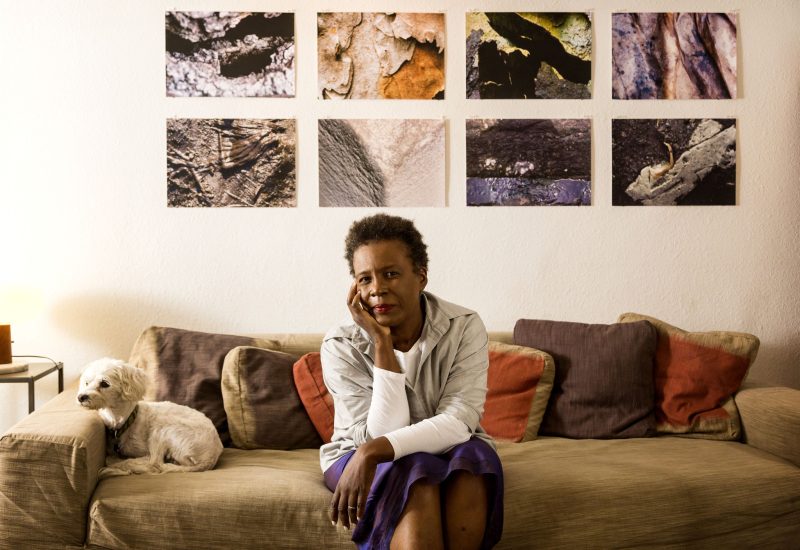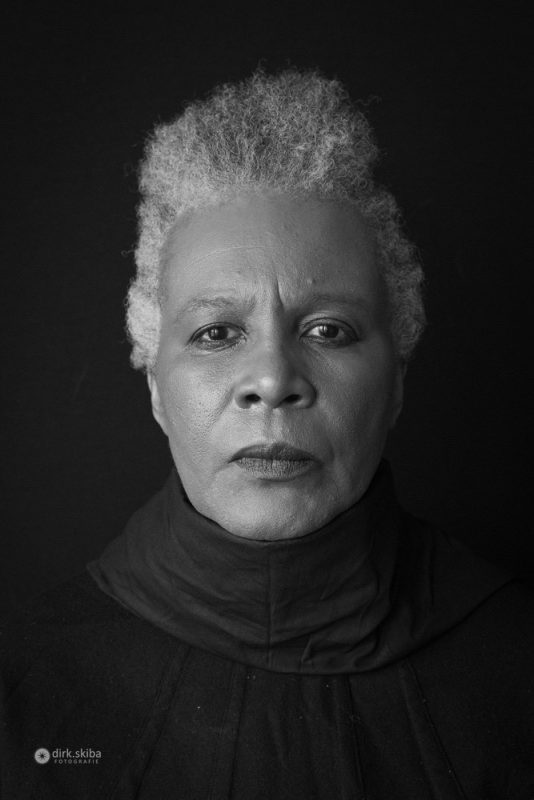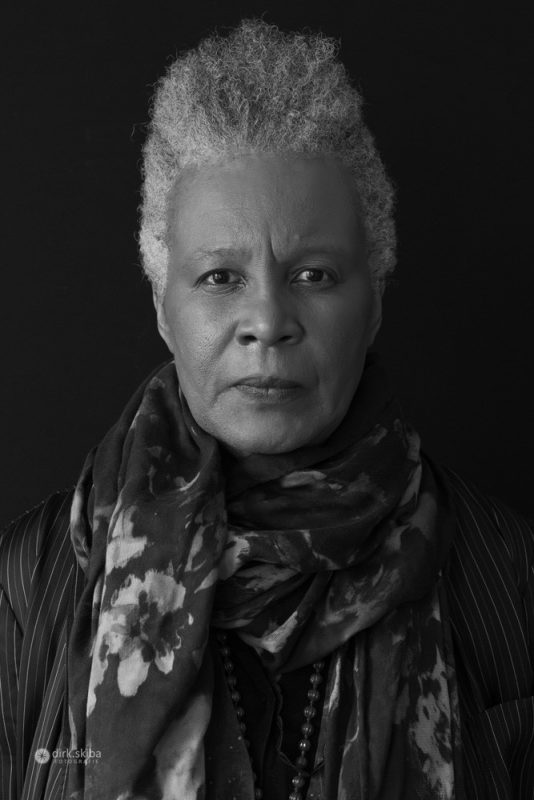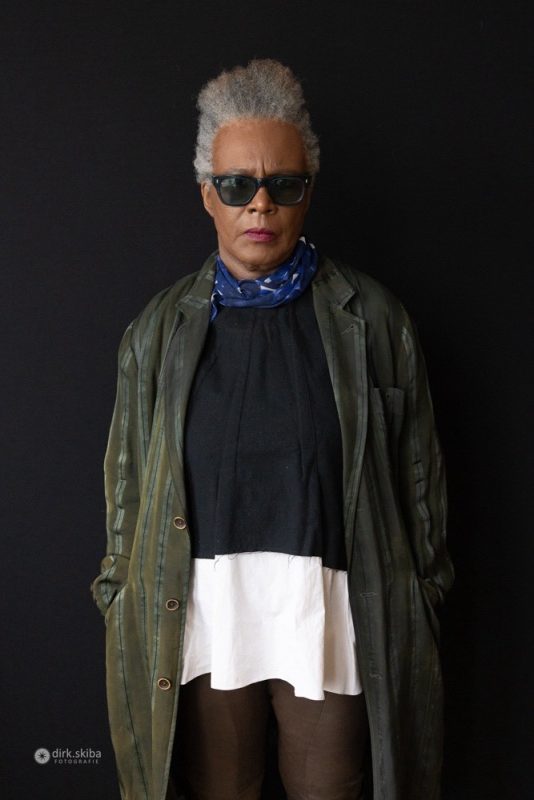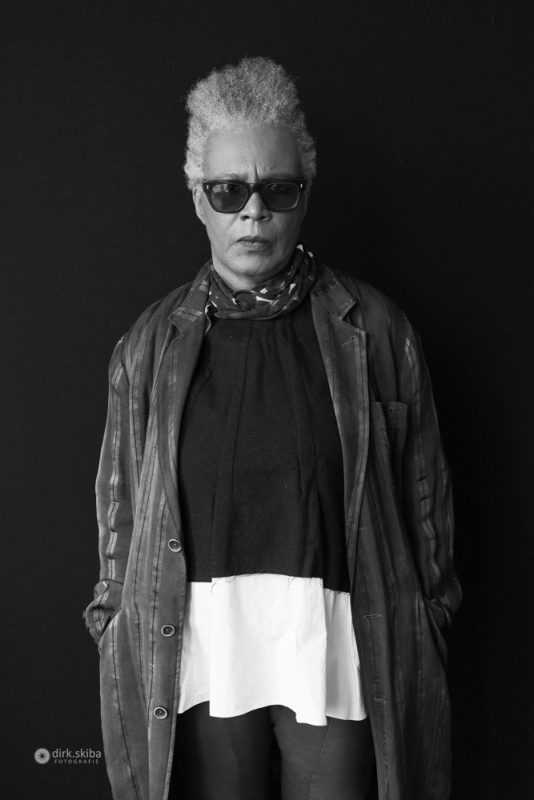
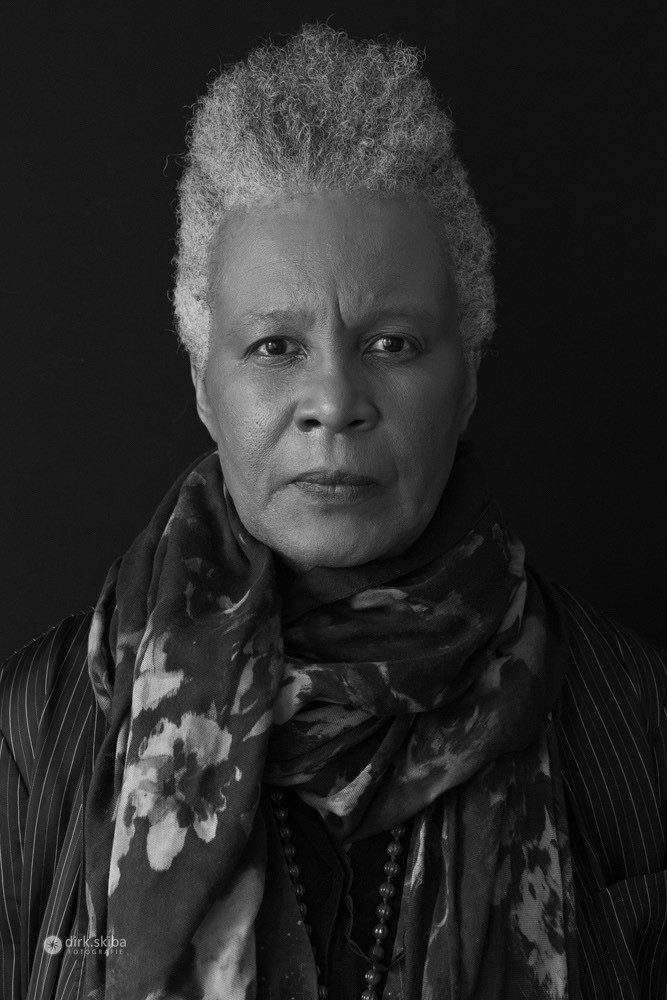
Claudia Rankine
New York Times Bestselling Poet
MacArthur "Genius" Award Recipient
NBCCA Winner for Criticism
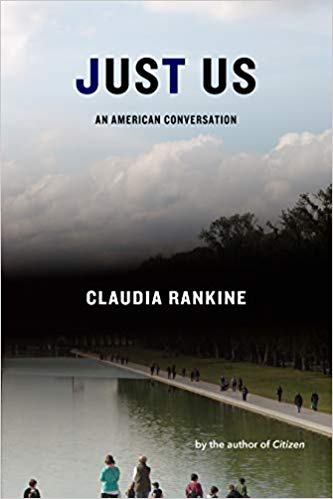
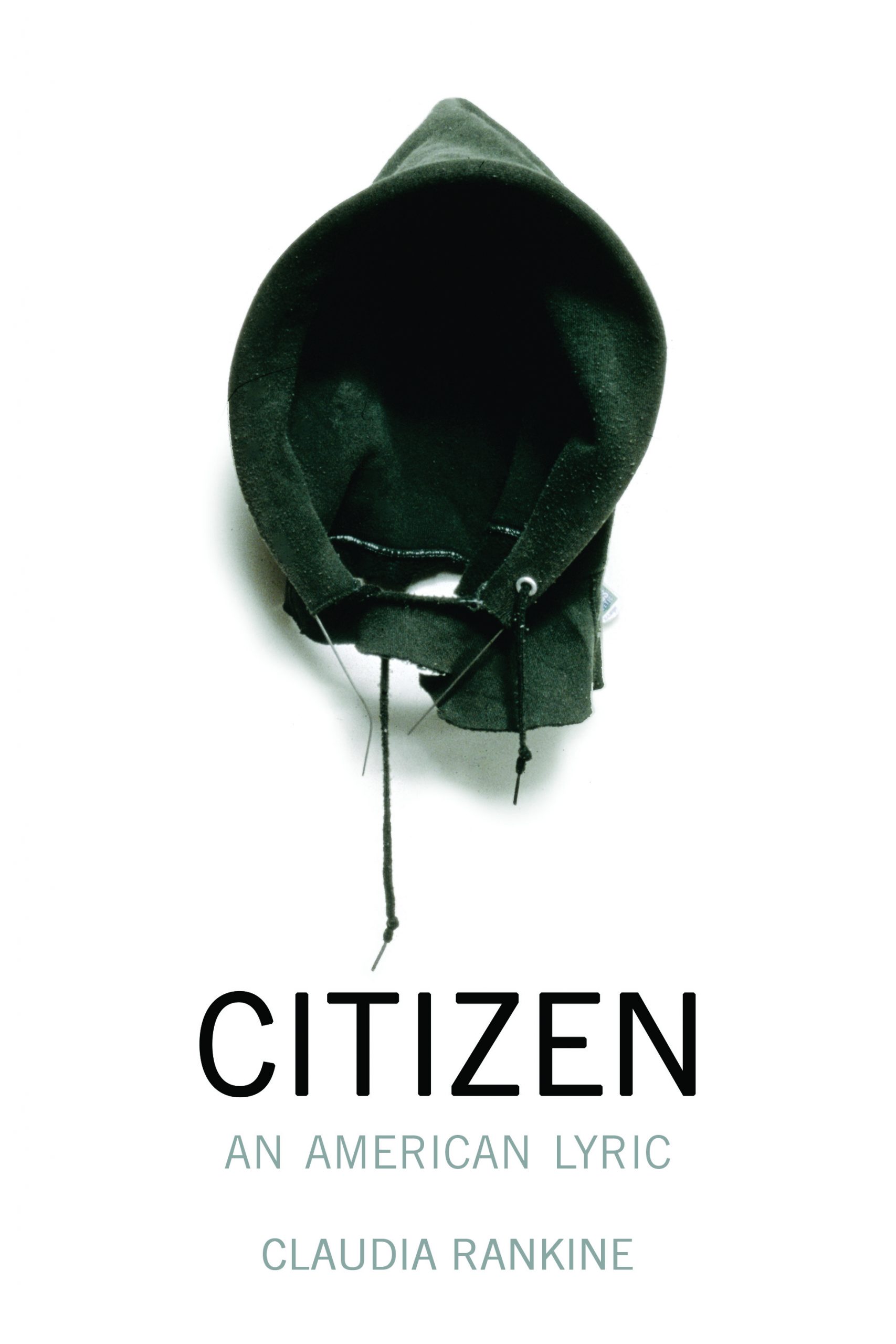
Readings &
Lecture Topics
- In the Mean-Time
- Poets Engaged with Nationalism, Borders and Belonging
- The Racialized Space of the Conversation
- The Making of Citizen
- The Creative Imagination & Race
- Poetry & Multimedia
- The Racial Imaginary: Workshop
- An Evening with Claudia Rankine
Biography
“Claudia Rankine is revelatory for me, as a white American, about pain points that are woven into the fabric of the American everyday. She models how it’s possible to bring this out into the open, not in order to fight but in order to draw closer. She shows how we can all do this hour by hour, encounter by encounter, in ordinary times and spaces.” –Krista Tippet
“Her work illuminates the emotional and psychic tensions that mark the experiences of many living in twenty-first-century America.” —MacArthur Citation
“Rankine’s voice shimmers with wisdom and fury.” —The Telegraph
Recipient of the 2016 MacArthur Fellowship, Claudia Rankine is the author of five collections of poetry including Citizen: An American Lyric and Don’t Let Me Be Lonely; two plays including Provenance of Beauty: A South Bronx Travelogue; and is the editor of several anthologies including The Racial Imaginary: Writers on Race in the Life of the Mind. Her first published play, The White Card, was published with Graywolf Press in 2019. She also co-produces a video series, “The Situation,” alongside John Lucas, and is the founder of the Open Letter Project: Race and the Creative Imagination. Among her numerous awards and honors, Rankine is the recipient of the Poets & Writers’ Jackson Poetry Prize and fellowships from the Lannan Foundation and the National Endowment of the Arts. Just Us: An American Conversation (Graywolf, 2020), is a collection of essays where Rankine questions what it means in these spaces to interrogate white privilege, well-meaning liberal politics, white male aggression, the implications of blondness, white supremacy in the White House, the Brett Kavanaugh hearings, and the alarming move toward Brexit. Her forthcoming and distinctly genre-defying project TRIAGE (Graywolf, 2026) follows the longstanding relationship between two women—the narrator and “the theorist”—and their love and antagonism that sets up the book as a crucial argument between the importance of perception and the need for action in our particular time of collapse.
Rankine’s bestselling book, Citizen: An American Lyric (Graywolf, 2014), uses poetry, essay, cultural criticism, and visual images, to explore what it means to be an American citizen in a “post-racial” society. A defining text for our time, Citizen was the winner of the 2015 Forward Prize for Best Collection, the National Book Critics Circle Award for Poetry (it was also a finalist in the criticism category, making it the first book in the award’s history to be a double nominee), the NAACP Image Award, the PEN Open Book Award, and the LA Times Book Award for poetry. Citizen was nominated for the Hurston/Wright 2015 Legacy Award, was a finalist for the 2014 National Book Award, and was selected as an NPR Best Book of 2014, who stated: “This collection examines everyday encounters with racism in the second person, forcing the reader—regardless of identity—to engage a narrative haunted by the deaths of Michael Brown, Trayvon Martin, and Renisha McBride.” Citizen also holds the distinction of being the only poetry book to be a New York Times bestseller in the nonfiction category.
In all of her work, whether writing about intimacy or alienation, Rankine’s voice is one of unrelenting candor, and her poetry is some of the most innovative and thoughtful work to emerge in recent years. Her work often crosses genres as it tracks wild and precise movements of mind. In the words of the Judges Citation for the Jackson Prize: “The moral vision of Claudia Rankine’s poetry is astounding. In a body of work that pushes the boundaries of the contemporary lyric, Rankine has managed to make space for meditation and vigorous debate upon some of the most relevant and troubling social themes of the 20th and 21st centuries….These poems do the work of art of the highest order—teaching, chastening, changing, astounding, and humanizing the reader.”
Her other poetry collections are Don’t Let Me Be Lonely (2008); the award-winning Nothing in Nature is Private; The End of the Alphabet; and Plot, wherein she welds the cerebral and the spiritual, the sensual and the grotesque. Don’t Let Me Be Lonely—a multi-genre project that blends poetry, essays, and image—is an experimental and deeply personal exploration of the condition of fragmented selfhood in contemporary America. Rankine is also the author of the play, Provenance of Beauty: A South Bronx Travelogue, which is performed on a bus ride through the Bronx. The New York Times calls it an “engrossing urban adventure, which does not conform to the standard formula for theater but does make the bustle outside the bus throb with history, mystery and meaning, as the best live performances do.”
Rankine co-edited the anthology American Women Poets in the 21st Century: Where Lyric Meets Language, and her work is included in several anthologies, including Great American Prose Poems: From Poe to the Present, Best American Poetry 2001, Giant Step: African American Writing at the Crossroads of the Century, and The Garden Thrives: Twentieth Century African-American Poetry. Her work has been published in numerous journals including Boston Review, TriQuarterly, and The Poetry Project Newsletter.
Rankine is also the playwright for The White Card, a meticulously crafted story, which raises uncomfortable questions about what is — and who are — on display. Exploring contemporary headlines and cultural touchstones, Claudia Rankine’s The White Card unpacks the insidious ways in which racism manifests itself in everyday situations and questions how our society can can progress if whiteness stays invisible.
A former Chancellor of the Academy of American Poets, Claudia Rankine joined the NYU Creative Writing Program in Fall 2021. She lives in New York.
Short Bio
Claudia Rankine is the author of five books of poetry, including Citizen: An American Lyric and Don’t Let Me Be Lonely: An American Lyric; three plays including HELP, which premiered in March 2020 (The Shed, NYC), and The White Card, which premiered in February 2018 (ArtsEmerson/ American Repertory Theater) and was published by Graywolf Press in 2019; as well as numerous video collaborations. Her collection of essays, Just Us: An American Conversation, was published by Graywolf Press in 2020 and her most recent project TRIAGE is forthcoming with them in 2026. She is also the co-editor of several anthologies including The Racial Imaginary: Writers on Race in the Life of the Mind. In 2016, Rankine co-founded The Racial Imaginary Institute (TRII). Among her numerous awards and honors, Rankine is the recipient of the Bobbitt National Prize for Poetry, the Poets & Writers’ Jackson Poetry Prize, and fellowships from the Guggenheim Foundation, the Lannan Foundation, the MacArthur Foundation, United States Artists, and the National Endowment of the Arts. A former Chancellor of the Academy of American Poets, Claudia Rankine joined the NYU Creative Writing Program in Fall 2021. She lives in New York.
Visit Author WebsiteVideos
Publications
TRIAGE
Hybrid Memoir, 2026
A distinctly genre-defying project, TRIAGE follows the longstanding relationship between two women—the narrator and “the theorist”—and their love and antagonism that sets up the book as a crucial argument between the importance of perception and the need for action in our particular time of collapse. It becomes a brilliant and moving work about friendship, art, and grief.
Just Us: An American Conversation
Essay, 2020
Revelatory, funny, and ingeniously written, the essays in Just Us take place in transitionary spaces—on airplanes, at a diversity training session, in a therapist’s office, at a dinner party, after a play, on the internet—where presumed neutrality gives way to American culture’s overwhelming whiteness. Rankine questions what it means in these spaces to interrogate white privilege, well-meaning liberal politics, white male aggression, the implications of blondness, white supremacy in the White House, the Brett Kavanaugh hearings, and the alarming move toward Brexit. A timely book and a brilliant interplay between text and visuals, Just Us is about intimacy and friendship, and brings us into a necessary conversation about what we don’t know. As Rankine says, “It’s all right to not know; it’s what you do with your not-knowing.”
The White Card
Play, 2019
Claudia Rankine’s first published play, The White Card, poses the essential question: Can American society progress if whiteness remains invisible? Composed of two scenes, the play opens with a dinner party thrown by Virginia and Charles, an influential Manhattan couple, for the up-and-coming artist Charlotte. Their conversation about art and representations of race spirals toward the devastation of Virginia and Charles’s intentions. One year later, the second scene brings Charlotte and Charles into the artist’s studio, and their confrontation raises both the stakes and the questions of what—and who—is actually on display. Rankine’s The White Card is a moving and revelatory distillation of racial divisions as experienced in the white spaces of the living room, the art gallery, the theater, and the imagination itself.
The Racial Imaginary: Writers on Race in the Life of the Mind
Anthology, co-editor, 2015
Frank, fearless letters from poets of all colors, genders, classes about the material conditions under which their art is made. An expansion and deepening of Rankine’s 2011 “Open Letter” web-project, which responded to a poem published by a popular white male poet that made use of a black female body. In response to Rankine’s own honesty, writers question, vent, relate the effects and affects of racial difference and explore art’s failure, thus far, to adequately imagine.
Citizen: An American Lyric
2014
“Citizen is the book of a generation.” — The Sunday Times (UK)
Claudia Rankine’s bold new book recounts mounting racial aggressions in ongoing encounters in twenty-first-century daily life and in the media. Some of these encounters are slights, seeming slips of the tongue, and some are intentional offensives in the classroom, at the supermarket, at home, on the tennis court with Serena Williams and the soccer field with Zinedine Zidane, online, on TV—everywhere, all the time. The accumulative stresses come to bear on a person’s ability to speak, perform, and stay alive. Our addressability is tied to the state of our belonging, Rankine argues, as are our assumptions and expectations of citizenship. In essay, image, and poetry, Citizen is a powerful testament to the individual and collective effects of racism in our contemporary, often named “post-race” society.
Don't Let Me Be Lonely
2008
In this powerful sequence of TV images and essay, Award-winning poet Claudia Rankine explores the personal and political unrest of our volatile new century. Rankine, well known for her experimental multi-genre writing, fuses the lyric, the essay, and the visual in this politically and morally fierce examination of solitude in the rapacious and media-driven assault on selfhood that is contemporary America. With wit and intelligence, Rankine strives toward clarity—of thought and imagination—while always arguing that recognition of others is the only salvation for ourselves, our art, and our government. Don’t Let Me Be Lonely is an important new confrontation with our culture, with a voice at its heart bewildered by its inadequacy in the face of race riots, terrorist attacks, medicated depression, and the antagonism of the television that won’t leave us alone.
Articles & Audio
Read What’s In Print
• Claudia Rankine’s Help brings the topic of white privilege to the stage – PBS
• Review: Blindfolds (and Kid Gloves) Off. Let’s Analyze Whiteness – NYT
• What Are White People So Afraid Of? Claudia Rankine’s Help – The Brooklyn Rail
• 5 Claudia Rankine Poems And Books You’ll Want To Read Over And Over – Blavity
• The Best Black History Month Reads, According To This Year’s Debut Authors – Bustle
• I Wanted to Know What White Men Thought About Their Privilege. So I Asked Them — NYT
• Trethewey, Rankine Among New Arts Academy Inductees — Washington Post
• Review: The Body, Vibrating, Is ‘What Remains’ – New York Times
• The Pursuit of Blondness – The Atlantic
• Claudia Rankine in Banff: On White Supremacy, Art and America – Canadian Art
• 2017 Guggenheim Fellows – Guggenheim Foundation
• Claudia Rankine to Receive the Bobbitt National Prize for Poetry – Library of Congress
• Claudia Rankine’s Home for the Racial Imaginary – The New Yorker
• Reconsidering Citizen: An American Lyric. A Symposium, Part I — LA Review of Books
• Reconsidering Citizen: An American Lyric. A Symposium, Part II — LA Review of Books
• Interview: Blackness in the White Imagination — The Guardian
• Rankine’s Citizen wins the Forward Poetry Prize — The Guardian
• Citizen – the ugly truth of racism — The Guardian
• Reading Corner: Citizen: An American Lyric — Gazettes
• Article by Rankine: The Meaning of Serena Williams — NY Times
• Article by Rankine: The Condition of Black Life Is One of Mourning — NYT Magazine
• A New Way of Writing About Race — The New York Review of Books
• The Double Nomination of Citizen for Poetry & Criticism — NBCC Blog
• Review of Citizen — New York Times Sunday Book Review
• Review of Citizen — The New Yorker
• Roundtable on Citizen (w/ Nick Flynn) — Los Angeles Times
• Rankine on the Violent Deaths of Black Men — PBS NewsHour
• Rankine on Citizen and Racial Politics — New York Times
• Review of Don’t Let Me Be Lonely — Boston Review
Listen to Audio
• A Conversation with Claudia Rankine – NPR Spokane Public Radio
• Claudia Rankine Lecture Broadcast – Literary Arts
• What Does It Mean To Choose To Dye Your Hair Blonde? – NPR
• A Conversation with Claudia Rankine – Slate Magazine
• Dead To Me: A discussion of Claudia Rankine’s Don’t Let Me Be Lonely – The Poetry Foundation
• Interview by Philip Dodd — BBC RADIO 3’s FREE THINKING
• Talking to Jon Snow about Charleston shooting — Channel 4 News (UK)
• Claudia Rankine on the Realities of Everyday Racism — NPR Weekend Edition
Selected Writings
CITIZEN (excerpt)
A man knocked over her son in the subway. You feel your own body wince. He’s okay, but the son of a bitch kept walking. She says she grabbed the stranger’s arm and told him to apologize. Yes, and you want it to stop, you want the child pushed to the ground to be seen, to be helped to his feet, to be brushed off by the person that did not see him, has never seen him, has perhaps never seen anyone who is not a reflection of himself.
The beautiful thing is that a group of men began to stand behind me like a fleet of bodyguards, she says, like newly found uncles and brothers.
•
At the end of a brief phone conversation, you tell the manager you are speaking with that you will come by his office to sign the form. When you arrive and announce yourself, he blurts out, I didn’t know you were black!
I didn’t mean to say that, he then says.
Aloud, you say.
What? he asks.
You didn’t mean to say that aloud.
Your transaction goes swiftly after that.
•
Words work as release—well-oiled doors opening and closing between intention, gesture. A pulse in a neck, the shiftiness of the hands, an unconscious blink, the conversations you have with your eyes translate everything and nothing. What will be needed, what goes unfelt, unsaid—what has been duplicated, redacted here, redacted there, altered to hide or disguise—words encoding the bodies they cover. And despite everything the body remains.
Occasionally it is interesting to think about the outburst if you would just cry out—
To know what you’ll sound like is worth noting—
— from Citizen: An American Lyric
DON’T LET ME BE LONELY (excerpt)
There was a time when I could say no one I knew well had died. This is not to suggest no one died. When I was eight my mother became pregnant. She went to the hospital to give birth and returned without the baby. Where’s the baby? we asked. Did she shrug? She was the kind of woman who liked to shrug; deep within her was an everlasting shrug. That didn’t seem like a death. The years went by and people only died on television—if they weren’t Black, they were wearing black or were terminally ill. Then I returned home from school one day and saw my father sitting on the steps of our home. He had a look that was unfamiliar; it was flooded, so leaking. I climbed the steps as far away from him as I could get. He was breaking or broken. Or, to be more precise, he looked to me like someone understanding his aloneness. Loneliness. His mother was dead. I’d never met her. It meant a trip back home for him. When he returned he spoke neither about the airplane or the funeral.

